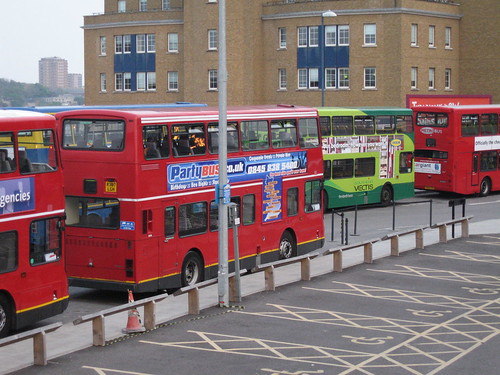Yet again at the weekends, buses are replacing trains on the 20 mile stretch of the Brighton main line south of Three Bridges, disrupting services between Brighton, Eastbourne and along the south coast.
Being a very busy route, about 15 weekends a year work has to be done on the line to make good all the wear and tear it gets. The bus services are well organised and all is as good as could be in the circumstances.
However, there must be a significant economic loss to Brighton and other places on the coast, due to the fewer number of visitors. And one wonders if it really necessary to close the entire stretch of line so often.
The real issue, however, is this. The Brighton main line has four tracks from London to Three Bridges. Just before the Second World War, when the line had been electrified, the extra pair of tracks was extended southwards as far as Balcombe Tunnel, And there it stopped, apart from a four track section through Haywards Heath. If the four tracking was completed as far as Wivelsfield, where the Eastbourne and Brighton lines split, there would be no need for these buses and it would be easier to deal with other disruptions.
This would of course be a relatively expensive stretch of line, with the construction of a second tunnel at Balcombe a new viaduct across the Ouse Valley, but how do the costs and benefits weigh up?
I got involved in a discussion with a Youtuber called “Philosophy all along”. This was in connection with criticism of Trump’s policy of deporting illegal migrants, which he argued would be bad for the economy as it would reduce demand. This implies that there is a need to import people to sustain demand. There is no obvious reason why a population should not be able to consume everything that the same population produces. If it can not, then something else is going on. It is a basic principle that wages are the least that workers will accept to do a job. Wages are a share of the value added by workers through their wages. The remainder is distributed as economic rent, after government has taken its cut in taxes. Monopoly profit is a temporary surplus that after a delay gets absorbed into economic rent. Land values in Silicon Valley are an example of this; it's like a gold rush. The miners get little out of it. Rent and tax syphon purchasing power away from those who produce the g...

Kommentarer